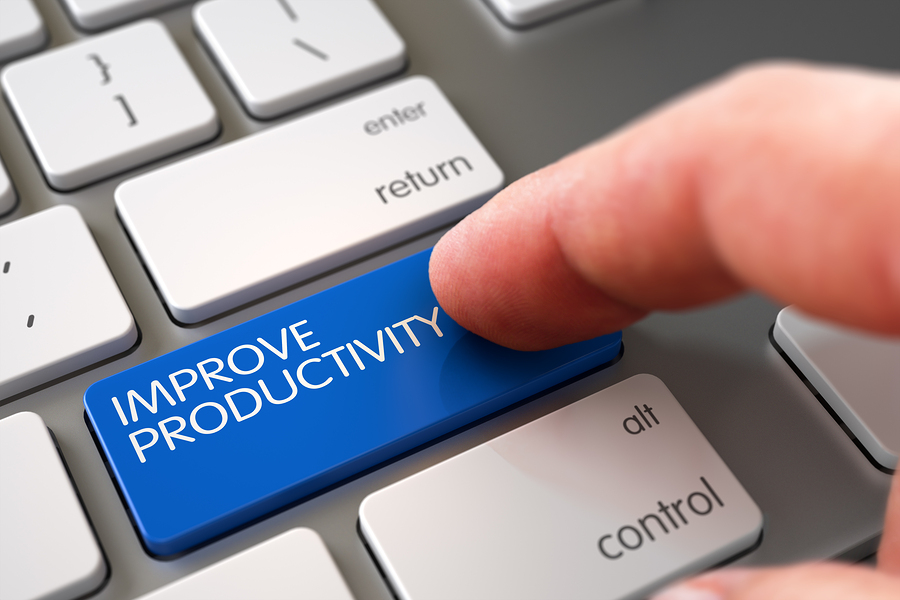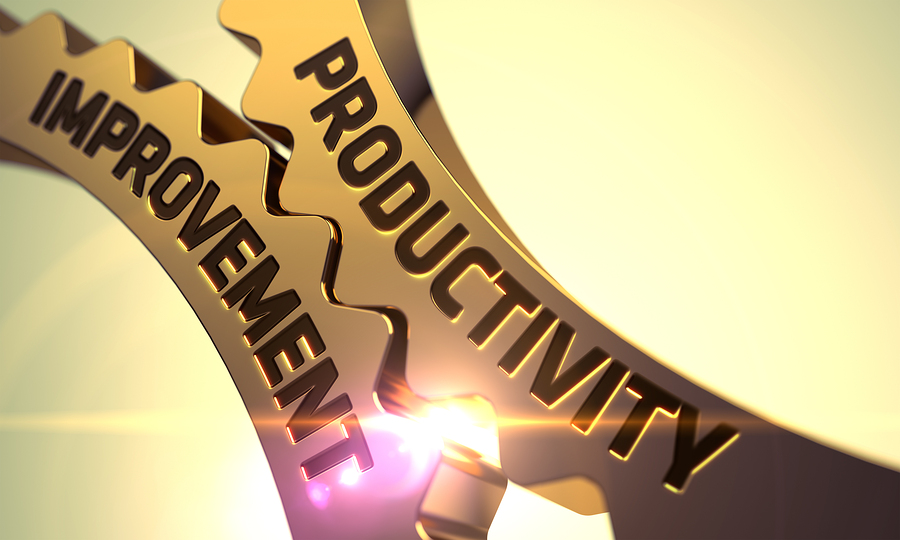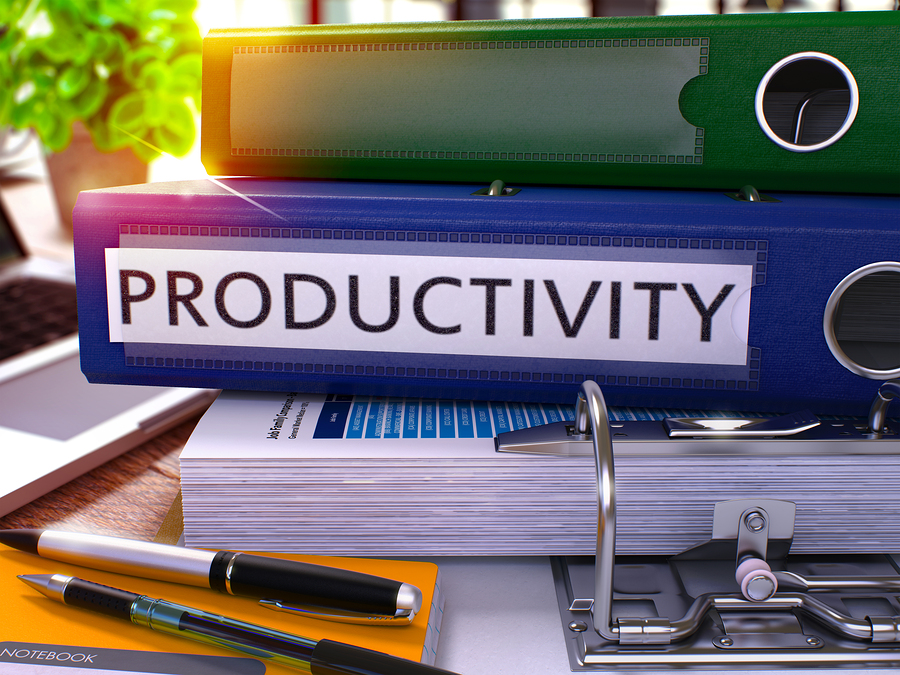- Make It Yourself Lavender Heart-Shaped Bath Bombs!
- 20 Things You Never Knew About “Down There”
- 12 Best Foods For Those Suffering From Arthritis Pain
- 12 Personal Hygiene Mistakes Almost Everyone Makes (Mom Never Told You About #4!)
- 15 Medicinal Plants And Herbs From The Cherokee People
- 12 Mind-Blowing Benefits Of Drinking Coconut Water During Pregnancy
- 12 Outstanding Winter Foods That Won’t Fatten You Up Like A Christmas Turkey
5 Tips For Boosting Your Productivity

Photo credit: bigstock.com
Everyone is busy these days. Sometimes it all seems like too much. In order to solve this problem, most people will attempt to organize what they need to do by making a to-do list.
Unfortunately for many people, this doesn’t work as well in practice as it does in theory. By the time the day ends, many tasks on the list remain incomplete, even though they may have been working hard all day. How does this happen?
The solution can be found in changing how your list is set up, and how you approach work itself. Let’s go through the list of 5 practical tips you can use to increase your productivity and lower your stress.
1. Prioritize What You Actually Need to Do, and When
When you are creating your task list, first determine, “What do I actually NEED to do? What are the most critical tasks that need to be accomplished today? It is imperative that you prioritize your tasks by importance, otherwise you will get lost in the weeds on tasks that are not relevant to your most important goal or project.
Once you have done this, write them out by order of importance, and start the most important task first. This way, if you only get one thing done that day, it will be the task that matters.
Make your to-do list the night before, that way you won’t waste time in the morning trying to think “what do I need to do today?” You can just wake up, enjoy your coffee and then just get started with your work, instead of burning cognitive energy trying to figure out your job for that day.
Continue to Page 2

Photo credit: bigstock.com
2. Stop multitasking
Multitasking is one of the most pernicious lies of the modern world. We are encouraged to do it in school and in the workplaces. Job postings will list “multitasker” as one of the qualities the employer seeks in a candidate. But the fact is that multitasking makes us LESS productive, not more. Recent research has proven it is neurologically impossible to multitask and think clearly and efficiently at the same time. Here’s why.
When you switch from one task to another, you brain has to store all the ideas you were just thinking about and store them in what’s called temporal memory.Your brain then has to clear out your “working memory”, and then retrieve information from your long-term memories which is relevant to the new task you are about to perform.
a. When you switch back to first task, guess what? That’s right, your brain has to do the whole process over again!
b. When you understand this, you will see how ludicrous it is to try and do multiple jobs at the same time.
c. When you’re working, turn off your phone. Don’t check your email. Odds are, you are not President of the United States. You don’t need to be “on call” at all times. The world is not going to end if you don’t return a phone call until after you’re done with your work.
Continue to Page 3

Photo credit: bigstock.com
3. Optimize Your Communications
Most people check their email constantly, frantically responding to messages as soon as they come in. Ditto for text messages, phone calls, skype calls, etc. The worst part is, they will drop what they are currently working on to respond to the message. When you do this, it throws off your focus and forces you to mentally recalibrate to the task at hand when you return to your work. (What did we just say about multitasking?)
Fortunately, this bad habit is relatively easy to fix. You’ll need to set up a new system for responding to communications in a way that allows you to stay on top of things but does not derail your focus.
1. Set up a schedule for checking you email in batches. Try checking email only at 9, 12, and 3pm, and see how this works for you.
2. Design a similar system for making and responding to phone calls. Eventually, you will train your colleagues and associates to understand that this is how you work, and they will respect it. (When they see how much more you’re getting done, they’ll probably respect you even more.)
Continue to Page 4

Photo credit: bigstock.com
4. Get Plenty of Sleep and Exercise & Eat Right
As time goes on we learn more and more about how intertwined the mind and body really are. Of course, you don’t need fancy neurological studies to know that things like exercise and sleep can improve your brain function. Anyone who’s ever suffered from insomnia knows this.
a. You NEED sleep. Coffee is not a substitute. Energy drinks are not a replacement either (not to mention they’re loaded with sugar). Sleep is actually vital to maintain brain health. When you are asleep, your brain “cleans” itself by eliminating waste proteins that build up between the brain cells as a result of neural activity. When you deprive yourself of sleep, you not only become groggy, unfocused and unproductive, but your brain doesn’t clean out these toxins and you increase your risk of Alzheimer’s disease later in life.
b. Exercise is also essential for honing your productivity. Rigorous physical activity improves brain oxidation and stimulates the production of Brain-Derived Neurotropic Factor, which facilitates the growth of new brain cells.
c. As for diet, you probably already know the need to eliminate junk food. Instead, eat a diet rich in omega-3 fatty acids and reduce sugar intake as much as possible. Foods high in omega-3s include various types of fish, olive oil, and coconut oil. Fish oil supplements are also an option.
Continue to Page 5

Photo credit: bigstock.com
5. Make a NOT-To-Do-List
Tim Ferriss, author of The Four Hour Work Week and serial life-hacker developed a system for boosting productivity that can make an enormous difference in your life right away. Oftentimes, removing a bad habit or behavior can have even more of an impact than adding a positive one.
Ferriss suggests eliminating a specific set of behaviors that undermine focus and productivity, like answering calls from unrecognized phone numbers, and not agreeing to meetings without a specific agenda or end time.
These are good ideas, but it’s possible to take this idea and apply it more broadly. Make a list of the things that tend to distract you, and things which stress you out. This list is your new “Not-To-Do” list. If you identify that certain choices you are making or situations you expose yourself to are hindering your productivity, that’s a sign that you need to stop doing them!
READ ALSO: 6 Natural Ways To Balance Hormones And Feel Good Every Single Day
Try these habits out see if they don’t make a change in your productivity. It’s likely you’ll be amazed by how much you’re able to get done now that you’ve made these simple adjustments.
References:
































